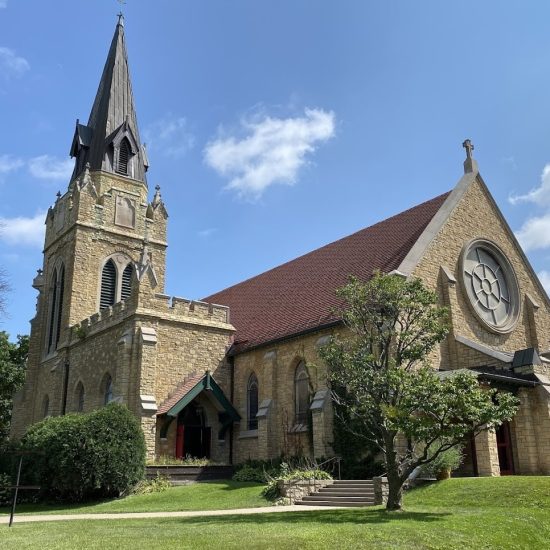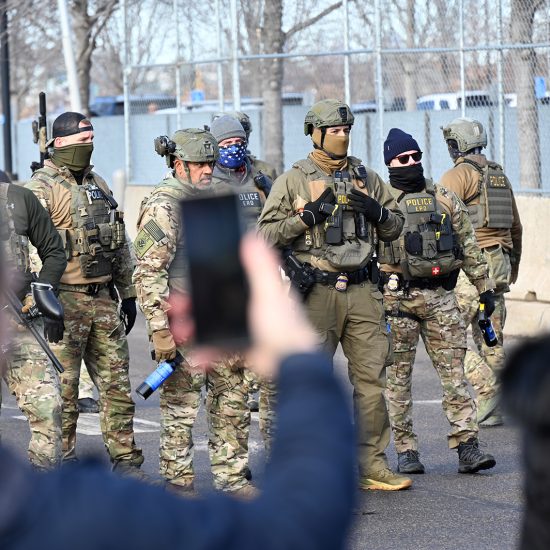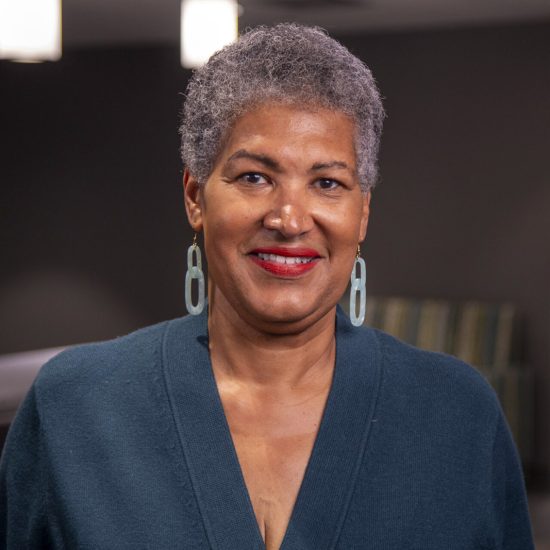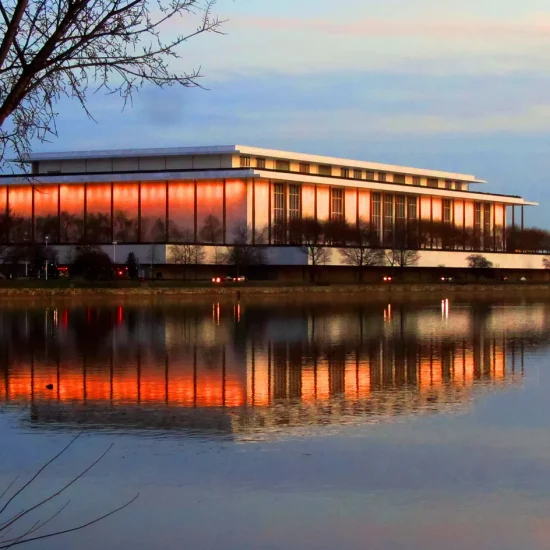Ed. note: Greg Mamula wrote this column for Word&Way to add to the dialogue following a Baptist News Global column by Travis Collins: “Caught in the middle: Is there still a place for Centrist Baptists like me?”
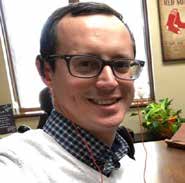
Greg Mamula
Baptists have used the past century to divide ourselves. Had we done this with grace and love and the intentional purpose of expanding the kingdom, we might not be experiencing the pain we have today. Instead, we created and recreated new associations, partnerships and organizations through visceral disagreements that have become reflective of ever narrower perspectives. As a Baptist who came of age after the major splits had already taken place, my engagement with them is different than those who lived through the turmoil.
The sheer plethora of available ministry partners directly created by hostile division is difficult to balance with Paul’s challenge to “Be completely humble and gentle; be patient, bearing with one another in love. Make every effort to keep the unity of the Spirit through the bond of peace” (Eph 4:2-3).
In an age when spectrums are being collapsed into competing silos, I believe being “moderate” (or anywhere along a spectrum) is a more difficult position to live out than being firmly planted in a more fixed polarizing position for many of the reasons you address. It is sometimes more expedient to lean fully into one extreme or the other because there seems to be more people there, more resources, more uniformity and forced conformity. It is easier to gain base desires like affirmation, security and certainty when you can label yourself and have a community affirm said label. It is sometimes easier to identify strongly as something — anything, so you can fight against the “other” who is not “us,” even if you are not actually that closely connected to the cause.
The difficulty with being a moderate is you do not have a single front from which to engage nor is there a single-minded agenda to defend. There are those from all sides who would condemn you as too progressive or liberal on some matters and too conservative and bigoted on others.
Perhaps, if there were a single nemesis to the moderate, it would be the fundamentalist. All polar positions survive on a bounded set of beliefs that create hard edges of prescribed behaviors with limited space for nuance. They rally the masses with fear by claiming their prescribed edges are under attack. They respond by creating opportunities and space to demean or destroy those they perceive as challengers to their edges. These fundamentally hard edges can be found in any polar position.
By contrast, moderates pursue the path of the center set, with a set of core beliefs at center but provide no prescription for how these beliefs are to be expressed. As a result, moderates have multiple fronts in which we are seeking to live in peace, many different sorts of people to which we seek to be in community, multiple avenues of grace to extend and more ideas, agendas, and points of views to filter than a polar position. It is exhausting, lonely, hard work. It is work that requires us to sit at tables we are never fully comfortable at, yet always willing to be present. It is work that requires us to be constantly vulnerable because you are the minority, or at least the oddity, to every group. We do not fit neatly or fully into any one group.
Hope.
There is always hope.
Moderates may not fit neatly or fully into any one group, but we find friends and colleagues and mutual beliefs in just about every group. We can sit at tables with people of different perspectives and practices and find something on which to agree. The most gifted moderates I am acquainted with can see the merits in other people’s arguments and understand what motivated them to draw such conclusions. The best moderates I know are gifted peacemakers and perceptive and wise. Moderates have the ability and calling to hold in tension many beliefs and ideas that polar groups are less willing or able to hold. Like old wineskins, many polar viewpoints burst with new ideas or thoughts. And that is sort of what is happening all around us.
So, we develop new wineskins. Not out of anger, frustration, or exhausted resignation. We create a middle space (a “third way” as has often been said of late) and invite any who would come to join us in seeking kingdom work. Chances are there are people from polar positions willing to come into a middle space. There are likely even more people who refuse to join a pole who would be extremely eager to join in that middle space if they know they existed and won’t be attacked at the front door.
What could be more Baptist than that? Jesus spent time with the polar groups. Pharisees to his right, prostitutes to his left. Sadducees at his table, broken and wounded people around his feet. The demon possessed on his left and tax collectors on his right. Mixed crowds of people on hillsides during the day and secret discussions with a single Pharisee in the evening.
But he never stayed there. He found his greatest rest with his intimate group of disciples. And when they became too much, he went off into solitary places to pray alone.
I think perhaps part of the difficulty of being moderate is that we no place to lay our heads. But neither did Jesus.
Is that arrogant? Yeah, it sounds arrogant. Still, a model worth trying to pursue? Possibly.
I think the idea of a small network of people you can trust and rely on to share your burdens with is important. Much like Jesus’s most intimate friends, a space where he could converse, rest, and prepare to reengage the poles. Having a small network of organizations and churches by which to partner in mission and ministry is equally important. These new networks seem to be developing all around us, springing up at irregular intervals when participating in the existing polar bodies becomes too much to bear.
Will these new networks serving as new wineskins ever match the prestige, size, and scope of previous iterations? Will any of them have a global impact or will they always remain local and contextually defined? Will any of them become “denominations”? I don’t know. I am grateful they are small, contextual and a little unorganized right now. It allows for more input from more voices. It creates space for greater creativity and risk. It pushes Baptist beliefs like emphasis upon the biblical narrative, local church autonomy, priesthood of the believer and separation of church and state front and center.
Moderates, of all people, emphasize the priesthood of the believer and church autonomy. People on the poles find it difficult to give others space to work out their faith with fear and trembling. Polar people seem to struggle with the autonomy of the local church, which is why they so quickly disassociate with the ones who don’t match them step for step, view for view, thought for thought. Moderate Baptists champion these values in ways polar bodies cannot because all polar bodies are by nature fundamentalists who have no room for it.
Moderates more than others must return to the Bible repeatedly to re-center their focus and ministry. To look again at the biblical narrative and see what God is doing in the text and how to apply that to world around them. Polar people seem to use the biblical narrative as a weapon to bully their opponents and abuse those who are outside of their tribe. Polar people tend to have limited use for deep biblical examination because they have previously crafted doctrines that tell them what the Bible says on an issue and have no need of reexamination, despite all their rhetoric about being biblical.
A moderate, pushes the separation of church and state to the fore. They believe the government should make no undue hindrance on the practice of religion nor should the church create no undue hardship on the governance of the land. Church and state are different spheres. One will always impact the other but neither should become the guiding doctrine of the other. The greatest tragedy of our time are not the debates regarding the “Johnson Amendment,” the selection of Supreme Court justices or the ability to withdraw from social security. The greatest tragedy is that we have sacrificed our primary identities as children of God for children of partisanship. We are red or blue. Our churches are red or blue. We choose our churches, pastors and theological camps based on red or blue instead of allowing our faith to guide us through a world filled with various shades of purple.
It is my opinion that a true Baptist is by definition a moderate. Baptists hold in tension many things and a Baptist above all should concede room for others to do the same. To honor the spiritual journey of others and celebrate with them as they see God working in their midst. If anything, I think we need to reclaim the word ‘Baptist’ from those who seek to use its pursuit of freedom to limit freedom of others by declaring who is in and who is out.
To those moderates seeking Baptist community and unity, I know it is exhausting work with long seasons of isolation and frustration. I hope you find the moderate Baptist tribe you long for.
I hope it is big enough to have a global impact, but small enough to have the agility to change and adjust with the seasons. I hope it is a tribe that connects the local happenings of the Spirit with the global presence of Christ pushing people into the arms of the Father who runs out into the road to welcome home his children.
Learn more about Greg Mamula in the Dec. 11 episode on the Word&Way podcast “Baptist Without An Adjective.”



